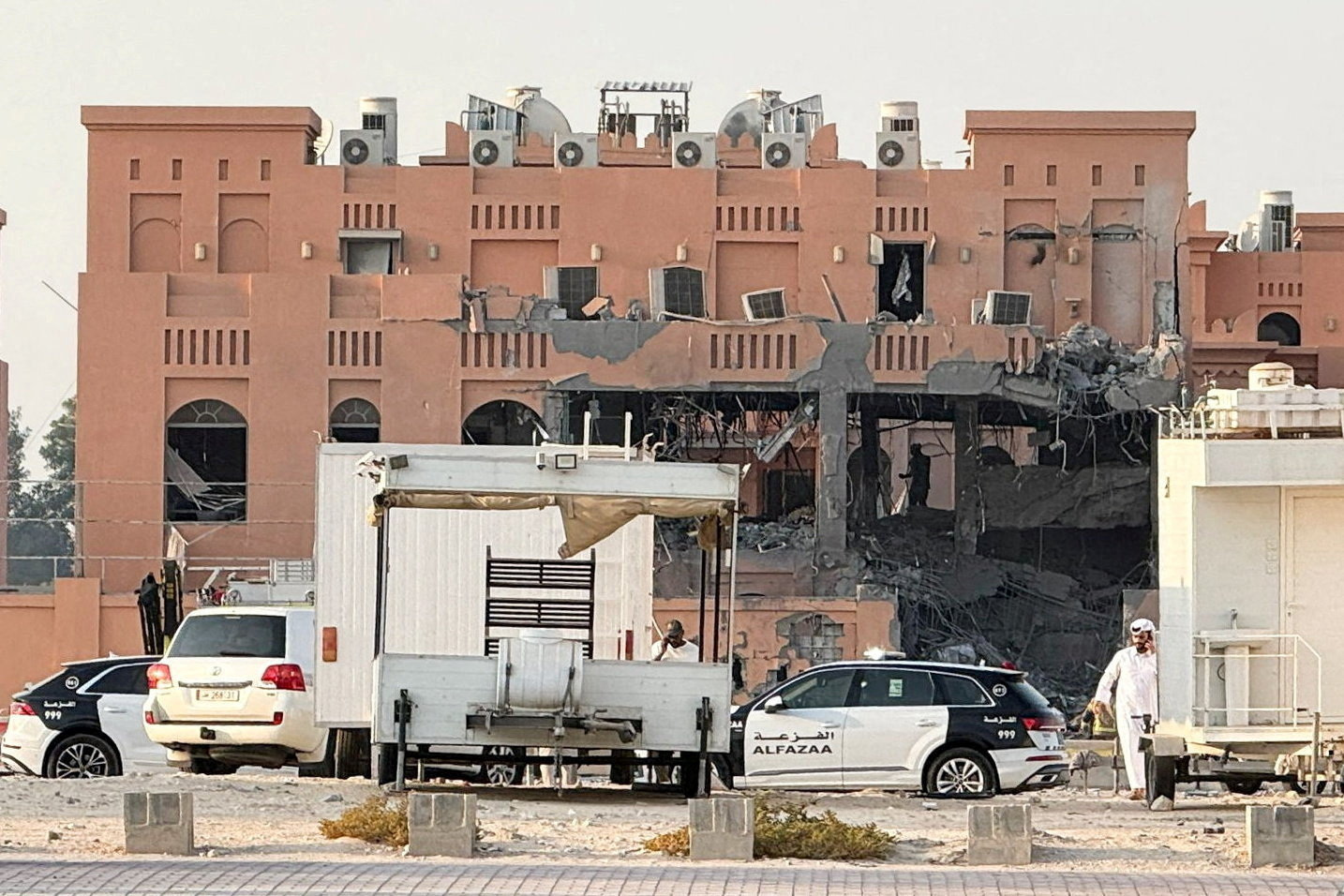Israel has recently targeted several of its Middle Eastern neighbors. An airstrike on Yemen's capital, Sanaa, on 28/8 killed the head of the executive body, Ahmed Ghaleb Nasser al-Rahawi, and several high-ranking Houthi officials.
Israel has also repeatedly struck targets in Syria and Lebanon, following ground offensives into both countries at different times. Simultaneously, the Israel Defense Forces (IDF) has intensified its campaign of strikes and raids, increasing pressure on Palestinians in the Gaza Strip and the West Bank.
In June, Israel carried out a large-scale assassination campaign targeting Iranian military commanders and nuclear scientists. Tel Aviv's actions led to a 12-day conflict between the two longtime rivals, reportedly degrading Tehran's nuclear capabilities and prompting Washington to launch a major airstrike on Iranian nuclear facilities.
However, Israel's actions have not ceased. On 9/9, the IDF targeted Hamas political leaders in Doha, the capital of Qatar. Hamas reported that key leaders survived the attack, but 5 members were killed, including the son of senior negotiator Khalil Al-Hayya. Qatar confirmed the death of one of its security personnel.
"Israel acted entirely independently, and we take responsibility for this action. This action may open the door to ending the war," Israeli Prime Minister Benjamin Netanyahu said.
 |
A damaged building following the Israeli attack on Doha, Qatar, on 9/9. Photo: Reuters |
A damaged building following the Israeli attack on Doha, Qatar, on 9/9. Photo: Reuters
However, observers consider Israel's latest move a serious escalation, extending the conflict to a Middle Eastern nation with close ties to the US. This action also risks derailing negotiations to resolve the conflict in Gaza.
"Unilaterally launching missiles into Qatar, a sovereign nation and close US ally, which has been working diligently with us to mediate peace, does not serve the interests of either Israel or the United States," former US President Donald Trump posted on social media.
Qatar hosts the largest US military base in the Middle East. Since the outbreak of the Israel-Hamas conflict in 10/2023, Doha has become a crucial location for diplomatic efforts to achieve a ceasefire in Gaza. Despite criticism from Israel, Qatar has allowed Hamas delegations to maintain a representative office in Doha for many years.
Allies of Prime Minister Netanyahu praised the 9/9 attack. "This is a message to the entire Middle East," Amir Ohana, speaker of the Knesset (Israeli parliament), posted on X. Finance Minister Bezalel Smotrich warned that adversaries "will not be able to escape Israel anywhere in the world".
Smotrich and other hardliners in Netanyahu's coalition have opposed diplomatic efforts with Hamas. They have called for the government to swiftly launch an operation to occupy Gaza, forcing the "voluntary migration" of 2 million Palestinians, while pursuing a policy of expanding settlements in the West Bank.
Robert Malley, a former senior Middle East official in the Obama and Biden administrations, suggested the attack on Doha seems to reflect the Israeli government's view that it can only prevail when its adversaries are "completely destroyed and unconditionally surrender". Meanwhile, several Middle Eastern neighbors are seeking political solutions to end the conflict, rescue hostages, and help Palestinians rebuild their lives and reintegrate into the region.
"Israel is also sending a message that Palestinians are not safe anywhere, even in the capital of a country close to the US, a key mediator between Israelis and Palestinians," Malley said. "What are the Egyptians or Turks thinking? Would officials from these countries want to meet with Hamas leaders, who could be potential targets of Israel?".
Across the Middle East, reactions to the attack have been strong. Qatar described the Israeli strike as a "barbaric act", accusing Netanyahu's government of "sabotaging all efforts to build peace".
"When it comes to the current negotiations, I don't think one can be optimistic after witnessing such an attack," Qatari Prime Minister Mohammed bin Abdulrahman Al Thani said, vowing a response to Israel's actions.
Saudi Arabia condemned Israel's "brutal violation and blatant disregard" for Qatar's sovereignty, as well as international law and norms. The United Arab Emirates (UAE), which has diplomatic relations with Israel, called Tel Aviv's actions "brazen and cowardly", emphasizing that this is an "irresponsible escalation".
"Israel has shattered all efforts for a ceasefire," said Khaled Elgindy, a Palestine expert and researcher at Georgetown University. "Clearly, the negotiations were just a cover for them to continue the war, especially to carry out their plan to destroy Gaza City. I think now we know for sure that there will be no ceasefire agreement".
"The attack almost confirms suspicions that Prime Minister Netanyahu does not want a ceasefire agreement with Hamas," said Erik Skare, a professor at the University of Oslo specializing in Hamas. "It's very difficult to see how Hamas can continue any ceasefire negotiations after this incident".
People in Doha flee after the Israeli airstrike on 9/9. Video: CNN
Einav Zangauker, mother of hostage Matan Zangauker and an anti-war activist, said she was "shaking with fear" when she heard about the attack. "Why does the prime minister insist on destroying every potential agreement? Why?", she asked.
Not only does this undermine the prospects for peace, the latest attack also damages Israel's efforts to build relationships with Gulf Arab states, which are seen as playing an important role in Tel Aviv's efforts to counter Iran's influence.
"This reinforces the growing perception in the Middle East that Israel is becoming a destabilizing factor," said Ghaith al-Omari, a senior fellow at the Washington Institute for Near East Policy.
The attack also leaves Qatar and other Gulf states feeling vulnerable, despite having invested billions of dollars in US defense equipment and hosting US forces.
"This is a difficult time for the Gulf, but the biggest loser may be the US," said Bader Al-Saif, an associate professor of history at Kuwait University, adding that Washington's credibility as a security guarantor in the region is being eroded.
Thanh Tam (According to Washington Post, WSJ, ABC)












